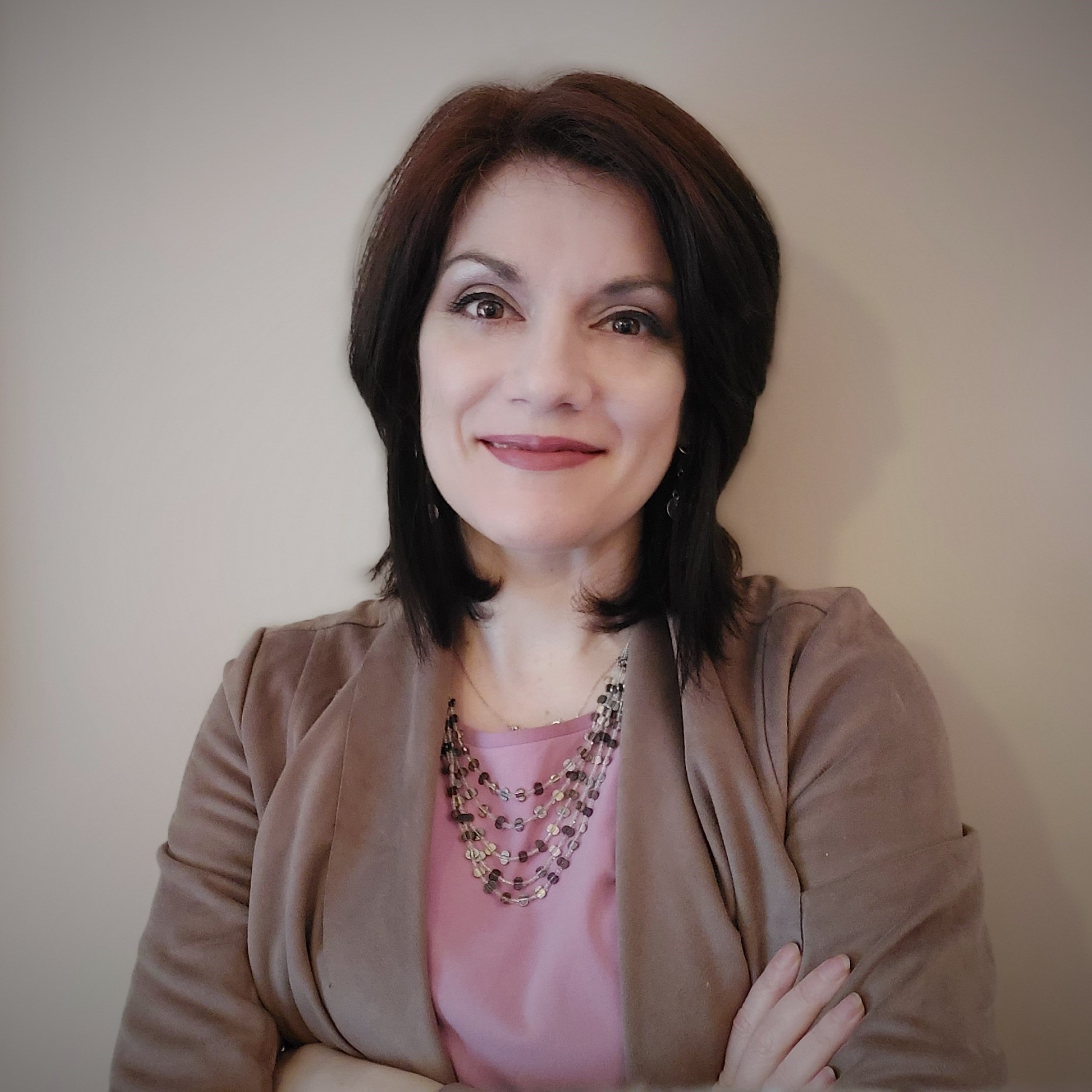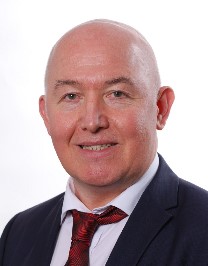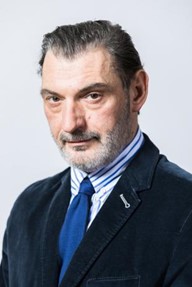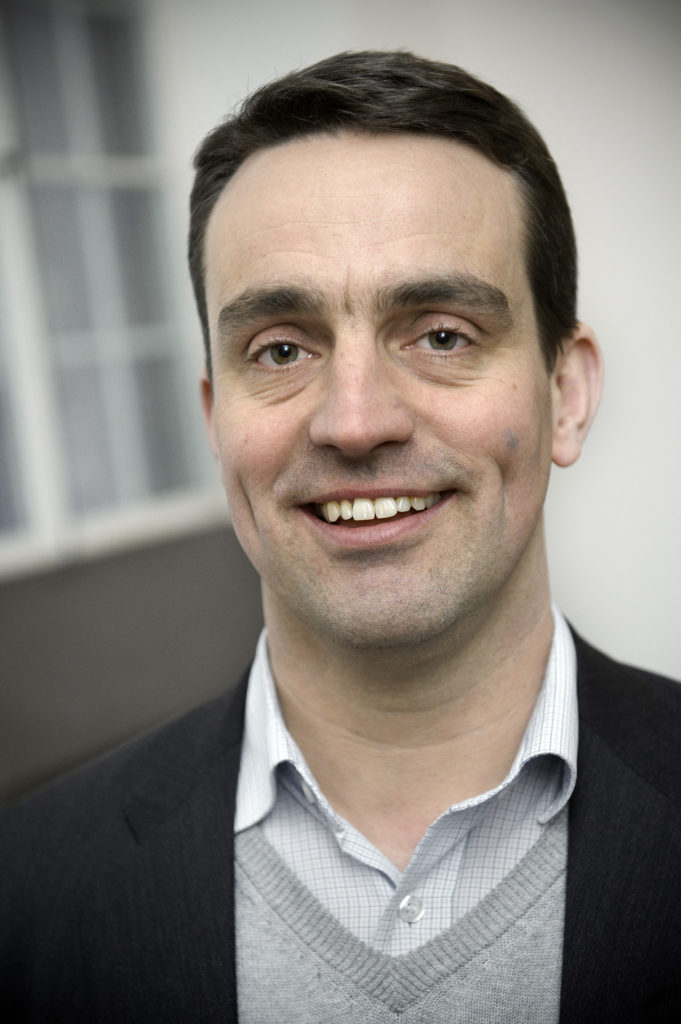Keynotes at ISGT Europe 2021
Speaker: Liana Ault, Energy Innovation lead, Nokia
Title: Benefits and Challenges in a Hyperconnected Grid
Time and location: Monday 18th; 11:00 to 11:50 (EEST); Online live stream
Abstract
Telecommunications has played a role in the resiliency and reliability of the power grid for decades. In the past 10 years, the speed at which grid technology changes have occurred and the drive to understand what’s happening even in the lowest voltage levels of the grid has increased exponentially. As we continue to strive globally for carbon reduction the necessity for reliable, low latency, and pervasive connectivity continues. In this presentation, we will take a macro view of the nature of hyperconnectivity in the power grid, we will focus on the drivers and benefits of connecting with new technologies as well as the challenges presented with a hyper-connected grid.
Biography
Liana is the Energy Innovation lead at Nokia, responsible for helping power utilities to develop new communications services. She has extensive experience implementing and maintaining networks at communications and energy companies, and has previously sat on the board of directors of the Utilities Technology Council. Liana grew up in the rural Midwest, and is particularly passionate about the potential for broadband to transform rural communities. She loves working with power utilities to explore how they can best deliver new services to their customers and build new revenue opportunities.
Speaker: Vladimir Terzija, Skoltech, Moscow, Russian Federation.
Title: Data-driven Monitoring, Protection and Control of Future Power/Energy Systems
Time and location: Monday 18th; 14:00 to 14:40 (EEST); Online live stream
Abstract
As a result of high penetration of Converter Interfaced Generation (CIG), also called nonsynchronous generation, converter connected demand and mixed ac-dc transmission and even distribution networks, the nature of operation of modern electrical power systems became a challenge. The nature of the entire system became more complex, expressed in quite a new dynamics, requesting new approaches for monitoring, protection and control of such an important system, the system playing one of the most critical role in progressing modern societies, the system enabling functioning of other critical infrastructures in all countries. On the other hand, availability of modern sensor and ICT technology opened new paradigms for coping with previously described challenges. The presentation is aiming at addressing new approaches of monitoring, protecting and controlling of future electrical power systems. In this context, some of typical PMU-based Wide Area Monitoring, Protection and Control applications, also model-free and data driven, will be discussed and presented. Experience gathered from 3 flagship multi-million projects funded by Ofgem (UK) Network Innovation Competition, VISOR, EFCC and FITNESS projects, will be summarized and also discussed from the perspective of their extension to another level: integration of different energy systems and approaches for their operation, fostering flexibility and resilience of a particular integrated energy system. The presentation will also attempt to demonstrate some of results achieved through hardware in the loop testing using Real-time Digital Simulator (RTDS).
Biography
Vladimir Terzija was born in Donji Baraci (former Yugoslavia). He received the Dipl-Ing., M.Sc., and Ph.D. degrees in electrical engineering from the University of Belgrade, Belgrade, Serbia, in 1988, 1993, and 1997, respectively. He is a Full Professor at Skoltech, Moscow, Russian Federation. He is also a Distinguished Professor at the Shandong University, Jinan, China, where he has been since 2013. From 1997 to 1999, he was an Assistant Professor at the University of Belgrade, Belgrade, Serbia. From 2000 to 2006, he was a senior specialist for switchgear and distribution automation with ABB, Ratingen, Germany. From 2006 to 2020 he was the Engineering and Physical Science Research Council (EPSRC) Chair Professor in Power System Engineering with the School of Electrical and Electronic Engineering, The University of Manchester, Manchester, U.K. His current research interests include smart grid applications; wide-area monitoring, protection, and control; multi-energy systems; switchgear and transient processes; ICT, data analytics and digital signal processing applications in power systems. Prof. Terzija is Editor in Chief of the International Journal of Electrical Power and Energy Systems, Alexander von Humboldt Fellow, Fellow of IEEE, as well as a DAAD and Taishan Scholar. He is the recipient of the National Friendship Award, China (2019).
Speaker: Sasa Djokic, University of Edinburgh, Scotland, United Kingdom
Title: Evaluation, Modelling and Forecasting of Uncertainties in Modern Power Supply Systems: Renewable Generation & Evolving Demand
Time and location: Monday 18th; 14:50 to 15:30 (EEST); Online live stream
Abstract
We are witnessing an unprecedented increase in the numbers and sizes of renewable electricity generation systems, whose input energy resources (e.g., wind and solar) exhibit strong and stochastic spatio-temporal variations, therefore resulting in uncertainties and difficulties in evaluating and predicting outputs of renewable generation. At the same time, demand is evolving due to technical and technology developments, where new types of loads (e.g., EV chargers, switched-mode power supplies, drive-controlled motors and heat pumps) are introducing more complex and difficult to predict demand patterns, with additional uncertainties coming from shifting of the load controls from end-users to aggregators, through the implementation of various demand-side management schemes. Consequently, modern power supply systems are featuring much wider ranges and significantly higher levels of uncertainties on both supply and demand sides, and their correct assessment and forecasting is becoming increasingly important to all stakeholders, not only to those who generate and consume electricity. For example, system operators should consider uncertainties in network power flows and network operating conditions, while electricity markets have to deal with uncertainties in scheduling available generation and in supplying expected demands.
This talk will consider two inherently different types of uncertainties: while demand has a strong cyclical component (from daily, through weekly, to seasonal load variations), which combines with the smaller stochastic and unpredictable changes, renewable generation (e.g., wind) has a strong stochastic and unpredictable component, which combines with the smaller periodical changes (e.g., diurnal and seasonal). The recent results related to the evaluation, modelling and forecasting of these uncertainties will be presented, discussed and illustrated using actual field data and measurements for both renewable generation (a couple of onshore and offshore wind farms) and for evolving demands (aggregate demands in a few MV and LV networks).
Biography
Dr Sasa Djokic (M’05–SM’11) received Dipl. Ing. and M. Sc. degrees in Electrical Engineering from the University of Nis, Nis, Serbia, and Ph. D. degree in the same area from the University of Manchester Institute of Science and Technology (UMIST), Manchester, United Kingdom. He is currently a Reader in Electrical Power Systems at the University of Edinburgh, Scotland, United Kingdom, teaching undergraduate and postgraduate (master and doctoral level) classes on: Fundamentals of Electrical Engineering, Electrical Power Systems Engineering, Energy Systems, Electrical Machines, Power Systems Economics, Network Integration of Renewable Generation and Power Quality. Dr Djokic has published more than 250 papers, of which three received IEEE Best Paper Awards. Over the past 28 years, Dr Djokic has performed research in the areas of: theoretical electromagnetics, illuminating engineering, power quality, load and distributed generation modelling and, most recently, system reliability and security analysis, as well as evaluation of much wider ranges of uncertainties introduced by new technologies on both supply and demand sides. He has contributed to several national and international standards, technical reports and engineering recommendations and is active in a number of CIGRE/CIRED, IEEE, IESNA, IEC/CISPR and other international Working Groups, Task Forces and Committees.
Speaker: Lars Nordström, KTH – the Royal institute of technology, Stockholm, Sweden
Title: The role of Artificial Intelligence in Power System Control and Operation
Time and location: Tuesday 19th; 11:00 to 11:50 (EEST); Online live stream
Abstract
We are witnessing an unprecedented increase in the numbers and sizes of renewable electricity generation systems, wAs is apparent all around us in society, artificial intelligence and machine learning is proposed to solve problems in all aspects of life and sectors of society. In some areas, the novelty is fading and in others it is gaining ground as it is proving its strength over traditional approaches. The topic of power system control and operation is no exception, from early enthusiasm to realization of the strengths and weakness of data driven approaches. This talk is takes a historical perspective on the developments and based on experiences from the past and some fundamental facts, that are easily forgotten, tries to point at areas in which we can see good potential for data driven approaches. The talk is concluded with a set of examples illustrating current developments in the field.
Biography
Lars Nordström is professor in Power System management and related information exchange at KTH – the Royal institute of technology, Stockholm, Sweden. There he heads the division of Electric power and energy system and is also deputy head of the school of Electrical Engineering and Computer Science. His research interest lies in the intersection of power system control and information and communication technologies. Past and present research work includes use of Multi-agent technologies for distribution grid management, as well as platforms for wide area control of transmission systems using Phasor Measurement Units. He has published well over 100 research papers in leading periodicals and conferences. Dr Nordström is past thematic leader Smartgrids of EIT KIC InnoEnergy, senior member of the IEEE, member of the Swedish NC of CIRED and past national representative in Cigre D2.
Speaker: Nikos D. Hatziargyriou, National Technical University of Athens, and Chairman and CEO of the Hellenic Distribution Network Operator
Title: The Role of Intelligent Distribution Grids in Energy Transition
Time and location: Tuesday 19th; 14:00 to 14:40 (EEST); Online live stream
Abstract
An overview of the 2050 Vision of the EU Energy Systems, as formulated by the EU Technology and Innovation Platform on Smart Networks for Energy Transition (ETIP SNET) will be provided. Emphasis will be given on the electricity networks, as the backbone of future integrated systems. The main characteristics of Intelligent Distribution Networks will be introduced and the benefits and technical and commercial challenges of Distributed Energy Resources connected at the distribution level will be presented. In particular, the capability of Intelligent Distribution Networks to enhance the overall stability and resilience of the Power System and provide local support for voltage, frequency and restoration by coordinating local distributed resources will be discussed. The subsidiarity principle and the application of decentralized control techniques for future distribution systems with a high penetration of distributed energy resources will be finally overviewed.
Biography
Nikos D. Hatziargyriou is a professor in Power Systems at the National Technical University of Athens. He has over 10 years of industrial experience as Chairman and CEO of the Hellenic Distribution Network Operator and as executive Vice-Chair of the Public Power Corporation. He was chair and vice-chair of the EU Technology and Innovation Platform on Smart Networks for Energy Transition (ETIP-SNET). He is honorary member of CIGRE and Life Fellow of IEEE, currently Editor in Chief of the IEEE Trans on Power Systems. He is the 2017 recipient of the IEEE/PES Prabha S. Kundur Power System Dynamics and Control Award. He is the author of more than 250 journal and 500 conference papers and was included in the 2016, 2017 and 2019 Thomson Reuters lists of top 1% most cited researchers. He is Globe Energy Prize laureate 2020.
Speaker: Catharina Sikow-Magny, Director, European Commission
Title: Green Deal & System Integration
Time and location: Tuesday 19th; 14:50 to 15:30 (EEST); Online live stream
Abstract
Biography
Catharina Sikow-Magny joined the European Commission in 1997 and is currently the Director responsible for Green Transition and Energy System Integration in the Directorate General for Energy. Before that, she was the Head of Unit in charge of Consumers, Local Initiatives and Just Transition. Before that, she was the Head of Unit responsible for Networks and Regional Initiatives. She has also worked on international transport, trans-European network policy and financing, internalisation of external costs, and strategic policy research. Before joining the Commission, Catharina Sikow-Magny was a team leader and chief economist in the private sector in Finland. She has also worked for the United Nations Development Programme in Port-au-Prince, Haiti. She holds a Master of Economics degree from the Aalto University, Finland.







